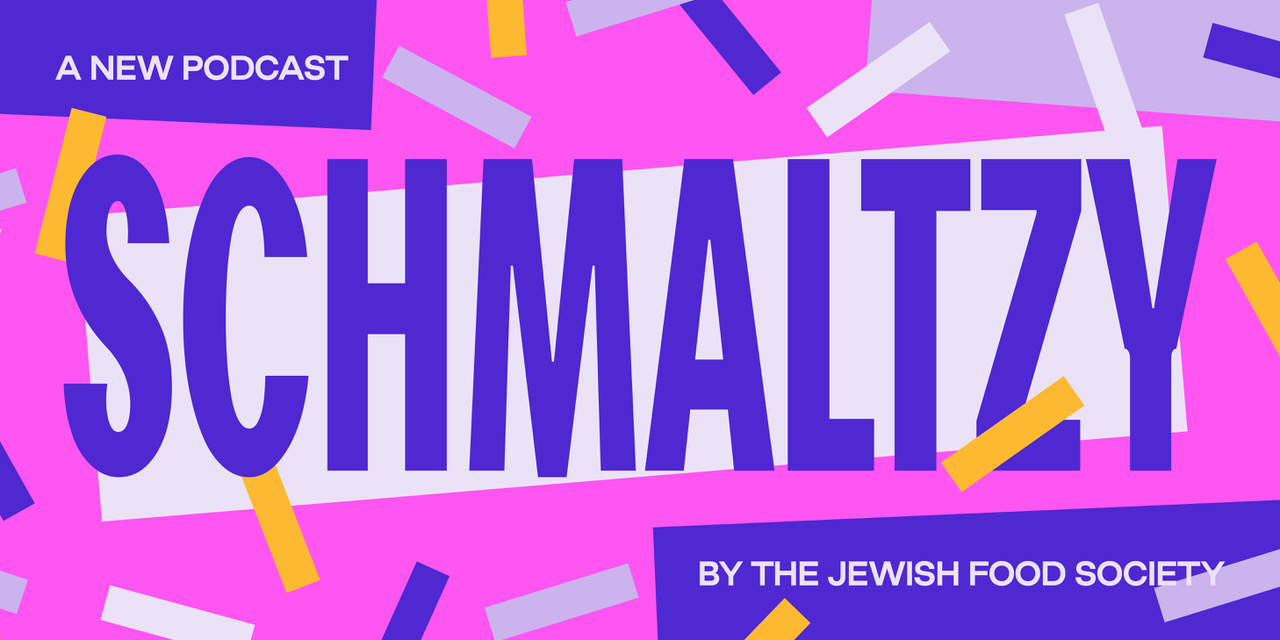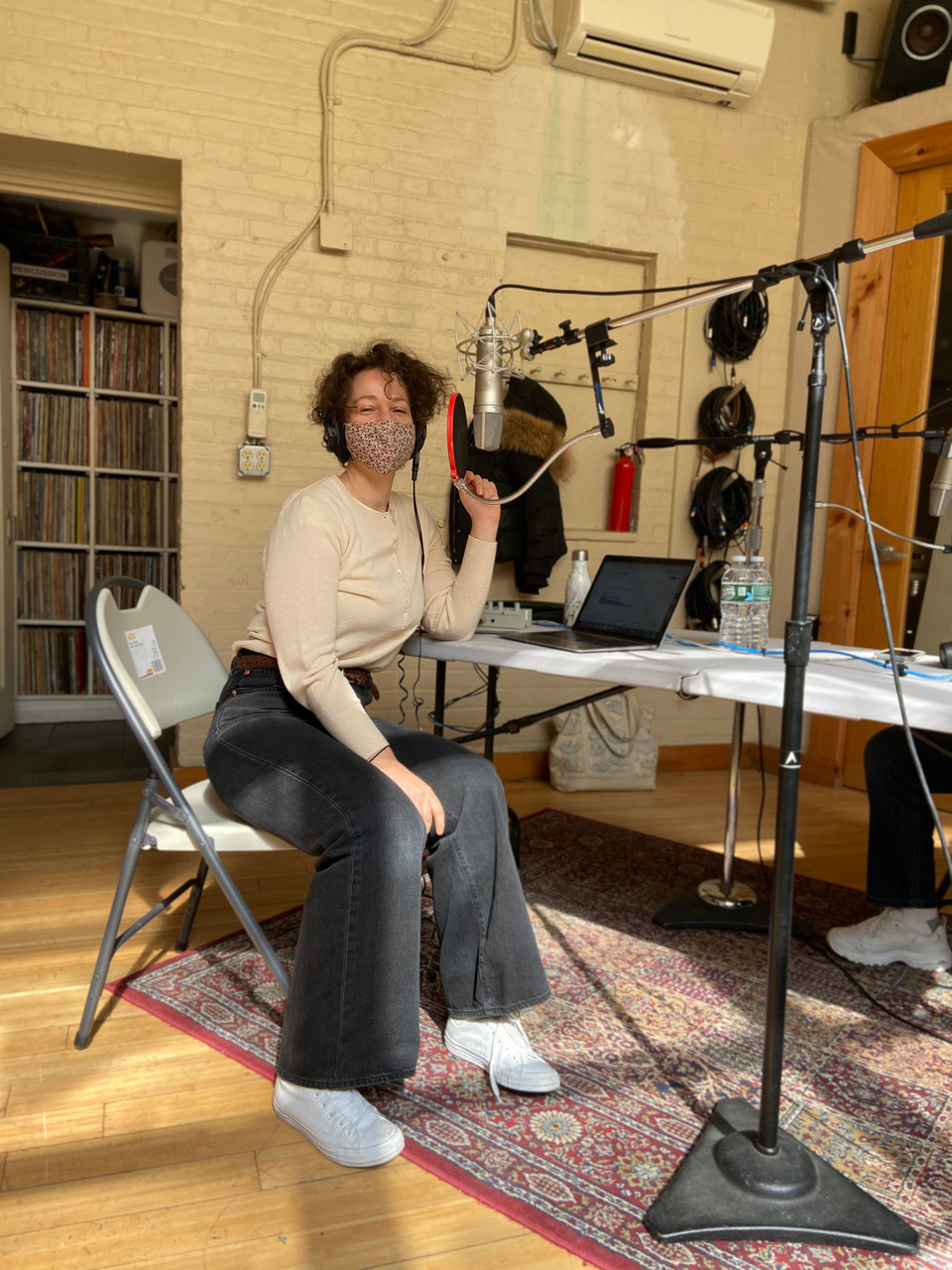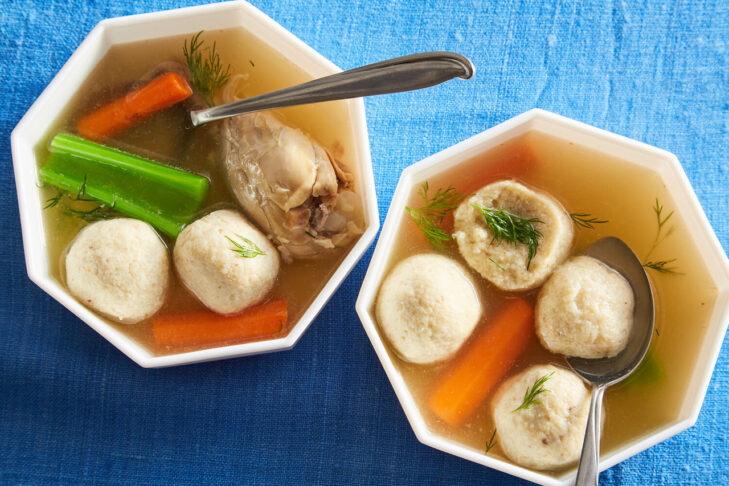Founded in 2017, the Jewish Food Society is dedicated to revitalizing and celebrating Jewish culinary traditions from around the world. The society’s core mission is to build a dynamic archive of family recipes, stories and histories that reference food. Amanda Dell is the society’s program director and host of its podcast, “Schmaltzy,” which recently received a start-up grant from the Covenant Foundation. “Every recipe has a narrative essay that accompanies it, describing the journey of a dish and each family’s roots,” she said. “We show a global perspective of Jewish families that is also cultural. We lovingly call our style ‘grandma chic.’ It evokes a sense of nostalgia and honors the roots of the recipe in a modern presentation.”
The global perspective, key to the society’s work, originates with its founder and executive director Naama Shefi. Raised on a kibbutz, Shefi remembers the meals in the communal dining hall as less than inspiring. But all of that changed for her in 2005 with a sumptuous meal she had in her soon-to-be grandmother’s apartment outside Tel Aviv. Nonna’s cooking reflected her multi-part journey through Iraq, Turkey and Greece. However, like most traditional cooks, her recipes were never written down. After Nonna died, Shefi realized that her recipes would be lost if they were not recorded for posterity. The experience of that meal and its recipes were the genesis for the Jewish Food Society.
Thus far, the society has archived over 600 recipes from diverse places such as India, Sweden, Brazil and closer to home in Brooklyn. Reading through the organization’s index of dishes is the equivalent of having access to the ultimate recipe box. The entries are a mix of Jewish classics, such as chopped liver, matzo ball soup and bourekas, ongoing improvisations on traditional dishes that include cholent pot pie and salted maple challah, and lesser-known cuisines that were almost forgotten. That last category is the society’s raison d’etre. It is also the basis of the society’s new project, “Tradish,” a series of stories and recipes that are shared on Instagram.

As for the process of vetting a recipe, the society rigorously tests each dish. These dishes are then matched against photographs of the meal that families have provided. The society also recreates recipes from someone’s memory, approximating ingredients and measurements in the absence of a detailed recipe.
Dell hopes that post-pandemic, the society will resume in-person events, including celebrations of Passover seders with the James Beard Foundation and the society’s signature event, a storytelling event with a buffet of foods featured in the stories, which was the inspiration for “Schmaltzy.” She is also excited about the launch of a new partnership with PJ Library showcasing families’ Jewish food stories and histories in original children’s books. As of this writing, the society and PJ Library are evaluating submissions.
As with all of its projects and developing content, the society honors its mission to serve as an open and welcoming platform—one that embraces Jewish cuisine’s cultural and historical aspects. “Food is an entry point for those who may not be formally affiliated with Judaism but are proud to be Jewish,” Dell noted.
Dell recently spoke to JewishBoston about the new podcast, the society’s response to the pandemic and its virtual programming.

How did the Jewish Food Society’s programs pivot to virtual versions in the pandemic?
Pivoting to virtual programming during this pandemic was the catalyst for moving the “Schmaltzy” podcast forward. We started with very popular in-person, Moth-style storytelling events in New York, San Francisco and Tel Aviv. When the pandemic hit, we realized we were sitting on this audio gold, having recorded the stories at each event. We brainstormed about bringing these inspiring stories to a bigger audience, which will hopefully lift people out of the doldrums of this pandemic.
What are some of your goals for the podcast?
We wanted to produce a podcast that concentrated on storytelling, so we looked in our vault of stories. It’s been a joy to speak with the incredible people in our community who have generously shared their stories. We are liberal, we are inviting, and we want to present many different stories. But my hope with the podcast—and we’re working on the second season—is that the themes are universal.
The live storytelling event is a significant precursor to the podcast. What was the event like?
It was so much fun. After we heard the stories, we walked around tasting the food that had been featured in the stories. It felt like a two-part event. You come, you listen to the stories live from the storytellers and then you eat food. In planning the event, The Moth was a big influence. The stories are told live on stage and entirely from memory. There’s no reading or notes. We work with professional story coaches and put a lot of time, energy and resources into creating the story. Producing the podcast, we discovered that audio is so intimate. To draw someone in to listen for seven or eight minutes to a story, it has to be captivating. I’m always searching for a moment of vulnerability in the stories.
What are some of the social justice issues that are important to the Jewish Food Society?
We are a nonprofit, always considering our community’s needs. At the beginning of the pandemic, we saw how integral restaurants were to our community and part of the Jewish people’s DNA. We knew we had to expand our mission to support those restaurants in New York City, where we are headquartered. We [also] saw that health care workers put themselves on the line every day. With support from a few foundations and our community, we hired restaurants to prepare meals for hospitals, and we delivered 75,000 meals all over New York City and New Jersey. We paid the restaurants as generously as we could so they could employ their staff and keep their doors open safely.
What else would you like to tell readers about the Jewish Food Society and “Schmaltzy”?
We’re a growing women-led organization and looking forward to the future. One thing that has been powerful for us in this pandemic is imploring people to reach out to the elders in their family and talk to them about what has brought them comfort and joy in difficult times. These memories are so precious, and we want to inspire people to hold on to them. That notion has always motivated our work, and the pandemic made it just as true.
This interview has been edited and condensed.



